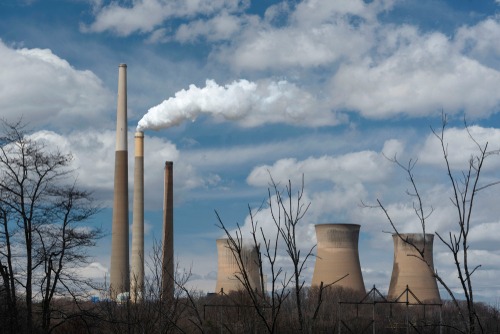
Thomas Melcher, business manager of the Pittsburgh Regional Building Trades Council, recently sent a letter to the Pennsylvania legislature and Gov. Tom Wolf expressing the council’s opposition to the state joining the Regional Greenhouse Gas Initiative (RGGI).
The council is specifically calling for support of legislation, SB 119 and HB 637, that will require Wolf and the Department of Environmental Protection (DEP) to recognize the statutory authority of the General Assembly before finalizing any carbon tax that would negatively affect state jobs and energy.
In his correspondence, Melcher specifically noted HB 2025, introduced in the state House during the 2019-2020 legislative session. The bill would have authorized the DEP to conduct a public comment process on and submit to the General Assembly a measure intended to control or limit carbon dioxide emissions by imposing a revenue-generating tax or fee on CO2 emissions, such as RGGI. Despite majority bipartisan support in both legislative chambers, Wolf vetoed the bill in September 2020.
“Governor Wolf and DEP Secretary Patrick McDonnell claim joining RGGI is the will of the people,” Melcher wrote. “If they are so convinced of this then why do they fear going through the legally proper process of putting this question to the legislature – the body that represents the people and is far better equipped than the Governor or Secretary McDonnell to understand the true and devastating local impacts of this unilateral decision.”
Melcher wrote that the council, comprised of 19 union crafts and more than 33 local unions, is not opposed to policies intended to mitigate or adapt the impacts of climate change and supports efforts discussed by the state Senate and House Environmental Resources and Energy Committees concerning carbon capture and storage and the development of hydrogen fuel from natural gas.
The problem, Melcher wrote, is the negative impacts that will result from the adoption of RGGI.
“The Penn State Center for Energy Law and Policy estimates that 86 percent of all CO2 reductions caused by plant closures in Pennsylvania will be offset by increased CO2 emissions in non-RGGI, PJM states such as West Virginia and Ohio who will rush to fill the void created by closure of our plants and to supply energy we need here in Pennsylvania. Energy we produce in-state today,” Melcher wrote. “Make no mistake – West Virginia and Ohio will gladly accept capital investment that should be occurring in our state.”
He argued that Pennsylvania’s inclusion in RGGI would reduce atmospheric carbon by only 14 percent while creating devastating economic consequences. He said adoption of RGGI would force the premature closing of every coal and many natural gas-fired power plants in the state, eliminate thousands of current and future job opportunities, and add economic stipulations which create a de facto ban on the development of any new natural gas plants in Pennsylvania, which would stall and eliminate private investment opportunities in the state. Melcher also noted the double digit increases in residential, commercial and industrial electric bills and price increases for goods and services.
“Since his RGGI participation executive order in late 2019, we have attempted to convey to the Governor our deepest concerns about the RGGI tax impacts on Pennsylvania’s fossil fuel electric power plants constructed, operated, and serviced by our members, and the businesses and workers that support the electric generation industry in our Commonwealth,” Melcher wrote.